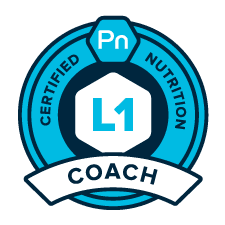Movement is Making a Comeback
During my daily scan of Apple News articles, I came across this sentence in an article: “A whopping 80%-90% of Black participants developed hypertension by age 60, and over half of white participants did.” Naturally, as a Black woman, I was appalled.
Here are some of the key findings from the study the article referenced:
2.5 hours of exercise per week did not prevent high blood pressure
5+ hours of exercise per week did protect against hypertension (blood pressure higher than 130/80 mm Hg)
Being physically active when young correlates with less cardiovascular disease 30 years later
You might be saying to yourself, “But I do moderate intensity exercise for 30 minutes per day, five days per week. Isn’t that enough? Plus, I eat well. Doesn’t that count for something?” Hold your panic. Nutrition does play a role, but let’s dig into this a bit more.
Less Active than Our Ancestors
Ok so I’m not sure if you heard, but as a society, we are way less active than our ancestors were years ago. Instead of walking to most places, we drive or take public transportation. Instead of running around outside, our children stare at screens all day. And rather than working on our feet doing hard labor in the hot sun, many of us sit for over 8 hours a day in air-conditioned offices. We’ve got it made! Or do we?
Our hunter-gatherer ancestors in Tanzania engaged in over two hours of moderate to vigorous physical activity per day. Not only did they have excellent metabolic and cardiovascular health, but they also were not developing blood pressure issues by the age of 60. They were still walking over five miles per day and carrying large loads in their 70s. So believe me when I say: this is not normal! Our bodies are not meant to deteriorate so quickly. Don’t you worry. Movement is making a comeback.
Connection Between Blood Pressure & Movement
Full transparency: scientists do not know why exercise reduces blood pressure. But several clinical trials show that it does. Some speculate that hormones, such as insulin (the hormone that regulates blood sugar), may play a role. Even not accounting for differences in body weight, people who regularly participate in aerobic exercise tend to have lower resting blood pressures. According to the research, the frequency or intensity of aerobic exercise and the type of exercise don’t matter. All exercise helps reduce blood pressure.
Why should you care about your blood pressure? An elevated blood pressure forces your heart to work harder to pump blood throughout your body. This can damage the walls of your arteries. Over time, this heightened blood pressure increases your risk of heart disease (the leading cause of death in this country), kidney disease, and stroke. Yikes.
Can My Diet Help?
What you eat, when you eat it, and how often you eat it definitely plays a role. But it will be very difficult to avoid the perils we discussed above without also adding in exercise and more movement generally. Even if you exercise an hour per day, what you do for the rest of the day matters as well. You will not out-exercise and out-diet a sedentary lifestyle. So while this does not mean you need to become an athlete, it does mean that you need to move more throughout the day, irrespective of your diet, sleep, and other health factors. Aim to stand for eight minutes and move around for two minutes for every 20 minutes you spend sitting.
Don’t stop there. When it comes to diet, there are several things you can do to reduce your risk of hypertension. Most Americans consume a diet of highly processed, hyper palatable foods. We have to change this, not just to prevent hypertension, but to improve overall health. Diets high in sodium strongly predispose you to hypertension. Yes, season your food. But don’t overdo it. Increased alcohol consumption can also elevate blood pressure. Do you really need to drink every single weekend? On the other hand, high intakes of potassium, polyunsaturated fatty acids, and protein, along with vitamin D (preferably from the sun because you’re outside moving around so much!), may reduce your blood pressure.
What about Sleep?
Regularly skimming on sleep keeps your blood pressure elevated for longer periods of time. Why? Because your blood pressure naturally decreases during your sleep (referred to as “nocturnal dipping”). This gives your heart a much-needed period of rest and restoration, as it doesn’t have to work as hard to pump blood. In fact, your blood pressure when sleeping is a better indicator of your risk for heart problems than your blood pressure during the wake hours.
Unfortunately, if you already have high blood pressure, skimming on sleep can make your hypertension even worse. When I say “skimming,” I’m referring to sleeping 6 hours or less per night regularly. If you have longer days at work and end up losing an hour every now and then, that is probably okay. But really strive to get at least seven hours per night.
So let’s briefly recap. You’re not down for high blood pressure, right? Good. First, you need to move more. Even if you’re a gym bum, training for a marathon, or exercise 6 times per week, what you do when you’re not exercising matters. Get up and move around more. Second, diet matters. But you cannot out-diet a sedentary lifestyle. Third, get some sleep! Turn off your screens, relax, and give your heart a break.



